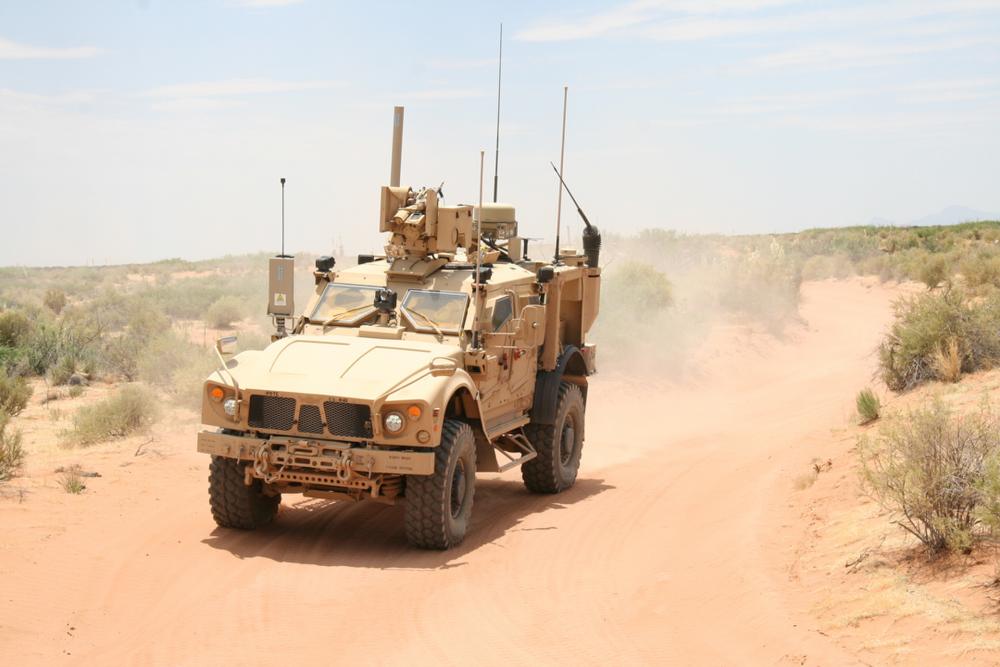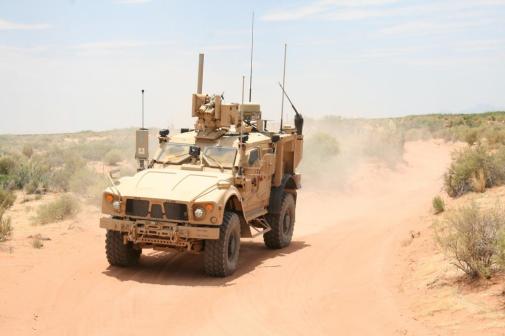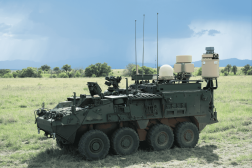Army to launch new algorithm-focused program in 2024 to support TITAN initiative

The Army plans to create a new technology “pipeline” for artificial intelligence and machine learning to aid the service’s Tactical Intelligence Targeting Access Node (TITAN) program, according to the official spearheading the initiative.
TITAN, a next-generation intelligence, surveillance and reconnaissance (ISR) ground station that will process sensor data from space, aerial and terrestrial systems, is considered a critical modernization component for the Army’s multi-domain operations concept and Joint All-Domain Command and Control (JADC2) because it will integrate various types of data from a variety of platforms to help commanders make sense of an increasingly dynamic and complex battlefield.
AI and ML are expected to be key enablers for that capability.
“The TITAN program … is our ability to ingest sensor data and service that sensor data to a customer, whether that’s a sensor to shooter thread, or whether that’s intelligence preparation — any sensing, any sensor delivered to a customer. And so you can imagine that’s a very difficult task, right? How do I take all this sensing information and deliver something meaningful?” Mark Kitz, program executive officer for intelligence, electronic warfare and sensors (IEW&S), said at this week’s AUSA convention in Washington.
New technology is needed to help overburdened analysts find what they’re looking for in a sea of data. Kitz highlighted two initiatives that his office is focusing on to deliver that.
“We are taking AI and ML algorithms very seriously. So seriously that I’m establishing … a separate, dedicated program, focused on sensor data and the software specific to how we process and deliver answers to questions around that sensor data,” he said.
Those capabilities will feed into the TITAN initiative. Kitz told DefenseScoop that the new program will kick off in fiscal 2024.
“The ability for us to process this sensor data is a core foundational element to us seeing far and sensing far and assessing that information that we see and sense,” he said. “So, first initiative is establishing an AI/ML pipeline specific to our sensor data.”
During her keynote address at the AUSA convention, Secretary of the Army Christine Wormuth highlighted TITAN as a key capability that will help the service “sense more, farther, and more persistently than our enemies.”
In June, the Army announced that it had awarded Other Transaction agreements to Palantir and Raytheon Technologies for development and integration of the platform. The companies are expected to develop competing systems that will be evaluated at a demonstration to inform the selection of a single vendor. A down-select is expected in fiscal 2023, an Army spokesperson told DefenseScoop.
Kitz said software is key and the Army is looking for help from vendors in this area.
“That’s really important to understand, because the TITAN program offers more opportunities to industry than just delivering a truck that has a bunch of antennas that ingest sensor [data]. No, this is a software program that has opportunities for industry around the many different modalities of sensor technologies,” he said. So, “the second initiative is to ensure that this TITAN program remains a software program so as we’re delivering this capability, we don’t sit back and say we’ve answered the question of sensor data.”
Kitz told DefenseScoop that the new algorithm-focused program to be launched in 2024 will continue indefinitely so that the technology supporting TITAN remains up to date.
“Our sensor data and our future environments are so dynamic that we’ve got to continue investing and delivering a TITAN program for the future,” he said. “That is a challenge for both me as a PEO and industry writ large, is how do we continue to see far as our environment changes extremely dynamically over months, years, and getting out to the Army of 2030? It’s gonna look very, very different tomorrow than it does today.”






